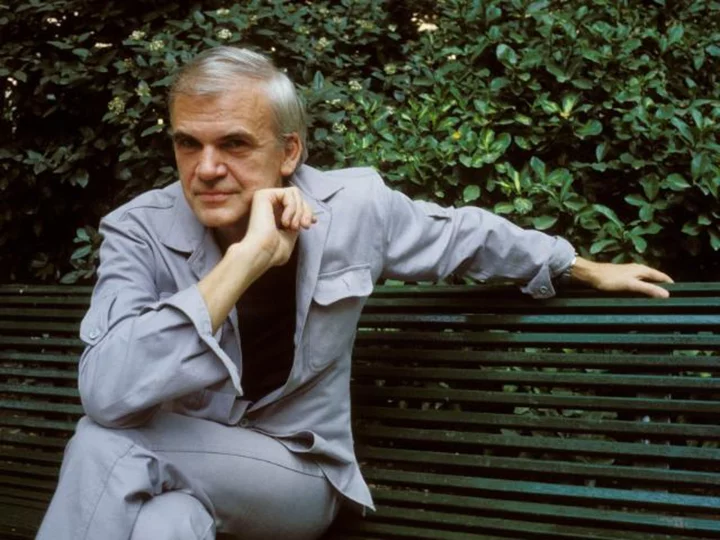Milan Kundera, the Czech writer who became one of the 20th century's most influential novelists but spent much of his life in seclusion, rarely engaging with the public, died in Paris on Tuesday, according to the Moravian Library in Brno. He was 94.
"Milan Kundera, a Czech-French author who is among the world's most translated authors, died on July 11, 2023 in his Paris apartment," the library, a state-funded research organization, said in a statement.
The author of "The Unbearable Lightness of Being," Kundera was known for his witty, tragicomic tales, which were often intertwined with deep philosophical debates and satirical portrayals of life under communist oppression.
Born in April 1929 in Brno, Czechoslovakia, Kundera was part of an influential generation of Czech writers, film makers and intellectuals who came of age during the turbulent post-World War II years.
Like many of that generation, Kundera joined the Communist Party as it took power shortly after the war and was, for some time, a staunch believer in its ideology. He was expelled from the party in 1950 for criticizing the regime, but had his membership restored a few years later.
As a successful writer and a sought-after academic, he became an influential critical voice within the party during the period of liberalization in the late 1960s that became known as the Prague Spring. It was during this era that his first novel, "The Joke," was published.
That book -- a deeply satirical look at revenge set in the totalitarian country -- became a bestseller at home and around the world. And it was this book, and Kundera's activities during the Prague Spring, that later cost him nearly everything he held dear.
In August 1968, a Soviet invasion abruptly ended the dream of a more democratic version of socialism. By the early 1970s, Kundera's books were banned and removed from libraries. He lost his teaching job and was barred from publishing.
He was declared an enemy of the regime and was relentlessly harassed by the communist police. His phone was tapped, his life disrupted. Eventually, the regime succeeded. Kundera was forced to emigrate and was stripped of his Czechoslovak citizenship.
Exile in Paris
He spent the rest of his life in exile in Paris, becoming a French citizen in 1981.
It was in Paris that Kundera's literary career truly blossomed, with the publication of his three most acclaimed works, "The Book of Laughter and Forgetting," "The Unbearable Lightness of Being" and "Immortality."
A believer in the power of the novel, a genre he said should be recognized as its own art form, Kundera gradually became more and more protective of his work.
He scrutinized translations of his work and banned all adaptation of his books following the 1988 film based on "The Unbearable Lightness of Being." Kundera served as a consultant on the movie, starring Daniel Day-Lewis and Juliette Binoche, but later said the picture had little in common with the spirit of the book.
"Immortality" was the last novel he wrote in his native Czech language before switching to French -- a move that underlined Kundera's complicated relationship with his homeland following his exile.
He returned rarely and when he did, he traveled incognito, booking into hotels under a pseudonym. While his Czech citizenship was restored in 2019, he was by then a French author whose home was in France.
Kundera always rejected the idea that his work was inspired by his own life experiences, a claim that was heavily scrutinized in 2008 when the Czech weekly newspaper Respekt published an article accusing the acclaimed author of acting as a communist police informant in 1950.
Based on an investigation by the Czech Institute for the Study of Totalitarian Regimes, the story alleged that a police report from that year showed that Kundera, then a student dormitory leader, denounced a young ex-pilot who had defected after the communist coup and later returned as a Western agent. He was arrested and spent 14 years in labor camps.
Kundera, having spent more than two decades living in seclusion and declining to do interviews, took the unusual step of speaking up. He strongly denied the accusation, calling it "the assassination of an author."
He was defended by many high-profile Czech and international writers, including the former Czech President and playwright Vaclav Havel.
Nonetheless, the episode left an uncomfortable question mark over the true inspiration for some of Kundera's most acclaimed novels, many of which revolve around the themes of disillusionment, responsibility, guilt and denunciation.









